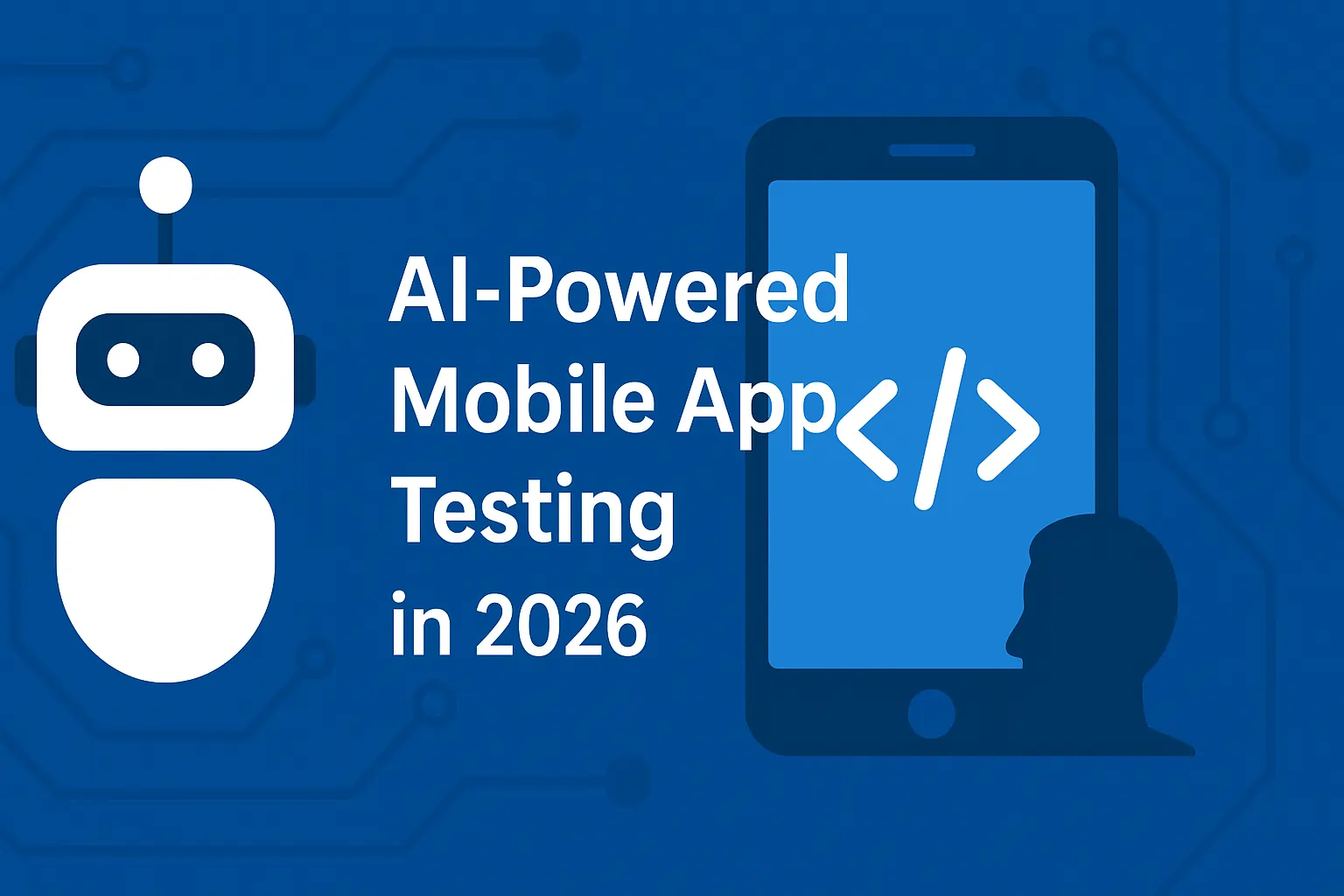Exploring the Cost and Value of Mobile App Testing Services
In today’s rapidly evolving digital world, mobile apps have become essential to how users interact and businesses operate. Whether for socializing, shopping, or streamlining business processes, apps have transformed the way we live. However, the development of an app is only half the battle; ensuring it functions smoothly and delivers a seamless user experience is where many businesses face challenges. This is where mobile app testing services come into play.
Mobile app testing helps ensure that your app runs efficiently, remains bug-free, and provides users with a positive experience. It is a vital phase of the app development cycle, designed to identify potential issues that could affect its performance and user satisfaction. A common question many businesses ask is: how much do mobile app testing services cost, and is the investment truly worthwhile?
In this post, we will explore the different types of mobile app testing services, the methodologies behind each, and how these services add significant value to your app. Additionally, we will examine the costs associated with mobile app testing and why it is an essential investment for the overall success and longevity of your app.
The Importance of Mobile App Testing Services
Before delving into the costs, it’s important to recognize the critical role mobile app testing plays in ensuring your app’s success. While the app development process consists of various stages, testing is often overlooked or rushed. However, inadequate testing can result in negative user feedback, poor retention, and lost opportunities. Here’s why mobile app testing is essential:
Identifies and Fixes Bugs
Bugs are inevitable during app development, but comprehensive testing helps identify and resolve these issues before the app reaches users. By addressing bugs early, you can avoid potential crashes, glitches, and performance issues that could affect your app’s functionality.
Enhances User Experience
Testing ensures that your app delivers a smooth, reliable experience to users. It helps verify that the app performs as expected, improving user satisfaction. A well-tested app is more likely to retain users, attract positive reviews, and maintain high ratings in app stores.
Improves App Security
Mobile apps face the risk of security breaches, which can compromise both user privacy and the reputation of your brand. Security testing plays a crucial role in identifying and addressing vulnerabilities, such as weak encryption or insecure data storage. By uncovering these risks early on, you can fortify your app against cyber threats, ensuring the safety of sensitive data and reinforcing user trust.
Optimizes App Performance
Performance testing assesses how well your app handles different scenarios, including heavy traffic, large data volumes, and limited device resources. It ensures that your app runs efficiently, even under stress, by pinpointing areas where performance may degrade. This includes fixing slow load times, reducing battery consumption, and preventing app crashes, ultimately resulting in a smoother experience for users.
Ensures Seamless Cross-Platform Compatibility
If your app is intended for both iOS and Android devices, cross-platform testing ensures that it performs consistently across various operating systems and devices. This process identifies any discrepancies that might occur between platforms, allowing for adjustments to be made to guarantee that users have the same high-quality experience regardless of the device they use.
Read: How Mobile App Testing Services Help You Stay Ahead in a Competitive Market
Types of Mobile App Testing Services
Mobile app testing services encompass a variety of approaches, each focusing on different elements of an app’s functionality, performance, security, and overall user experience. The type of testing required often depends on the complexity of the application. Below are the main categories of mobile app testing services:
1. Mobile App Quality Assurance (QA)
Quality Assurance (QA) testing is crucial for ensuring that your app adheres to the necessary quality standards. This process includes structured testing methods to detect bugs, defects, and other inconsistencies early in the development cycle. QA testing verifies that the app performs as expected and complies with platform-specific guidelines, such as those set by the Google Play Store or Apple App Store.
2. Manual Mobile App Testing
Manual testing involves testers simulating user actions on the app. They perform test cases to evaluate the app’s functionality, usability, and user interface. Manual testing is especially useful for detecting issues that automated tests might miss, such as UI flaws or usability problems.
Some aspects of manual testing include:
- Functional Testing: Verifying that the app’s features work as expected.
- Usability Testing: Assessing the app’s design and ease of use.
- Exploratory Testing: Testers explore the app without predefined test cases to identify hidden issues.
Manual testing is more time-consuming but often cost-effective for smaller apps or projects with unique functionalities
3. Mobile Automation Testing
Mobile automation testing leverages specialized tools to automate test execution. This is especially useful for large-scale testing, regression testing, and repetitive tasks. Automation tools like Appium, Espresso, and XCUITest simulate user actions, check app features, and identify performance issues automatically. The key benefits of automation testing include:
- Speed: Automated tests run faster than manual tests.
- Reusability: Test scripts can be reused for future app versions.
- Coverage: Automation can run large test suites across different devices simultaneously.
4. Performance Testing
Performance testing assesses how your mobile application behaves under various conditions, such as high user traffic, limited resources, or peak demand. It’s an essential process to detect performance issues early and ensure the app operates efficiently, even in challenging environments.
Key performance tests typically include:
- Load Testing: Simulating regular user traffic to evaluate how the app handles typical usage.
- Stress Testing: Testing the app’s performance beyond normal limits to determine how it handles extreme scenarios.
- Scalability Testing: Measuring how well the app can handle an increasing number of users or additional resources without performance degradation.
5. Cross-Platform Mobile App Testing
Cross-platform testing ensures that your mobile app performs consistently across different platforms, such as Android and iOS. This is especially important for apps aimed at reaching a broad audience, as it ensures uniformity in functionality and user experience across all devices. Cross-platform testing can be done manually or with automated frameworks like Appium or Xamarin.
6. Security Testing
Security is a critical aspect of mobile apps, as they often handle personal and financial data. This type of testing checks for weak points in encryption, authentication, and data storage, among other areas.
Key areas of security testing include:
- Authentication Verification: Ensuring that users can only access features they are authorized for.
- Data Protection: Testing that sensitive data is securely encrypted both during transmission and while stored.
- Penetration Simulations: Conducting controlled “attacks” on the app to uncover security loopholes.
7. Functional Testing
Functional testing is a vital step in verifying that your app’s features operate as intended. It checks whether the app responds appropriately to user inputs and whether its functionality aligns with design specifications. This testing ensures that users experience all the expected features without any glitches.
Examples of functional tests include:
- Login Validation: Ensuring users can successfully log in with the correct credentials.
- Menu and Navigation Checks: Verifying that all buttons and links take users to the right pages.
- Data Processing and Output: Ensuring that data entered by the user is correctly processed and displayed.
8. Usability Testing
Usability testing is focused on how user-friendly and intuitive the app is. It evaluates the ease with which users can navigate the app and interact with its interface. The goal is to ensure that the app is not only functional but also delivers an enjoyable and efficient user experience.
Key components of usability testing include:
- User Interface Design (UI): Evaluating the app’s design elements for clarity, visual appeal, and ease of use.
- Ease of Navigation: Testing whether users can move through the app smoothly without confusion.
- User Feedback and Satisfaction: Collecting insights from real users to improve the app’s overall experience.
9. Mobile App Localization Testing
For apps targeting global audiences, localization testing ensures the app works in various languages, cultures, and regions. It verifies that the app is translated correctly, and that regional features such as currency or payment systems work properly.
Cost of Mobile App Testing Services
The cost of mobile app testing services depends on several factors, including:
- Type of Testing: Manual testing is generally less expensive than automated testing, but automated testing offers long-term savings for larger apps.
- App Complexity: Complex apps with more features or those that support multiple platforms will require more extensive testing.
- Testing Tools: The choice of tools and software, such as Appium or Espresso, may add to the cost due to licensing fees.
- Service Provider: In-house testing teams may be more expensive than outsourcing to third-party services. Outsourcing can be more cost-effective for small to medium-sized businesses.
- Geographical Location: The location of the testing service provider also impacts cost. Testing services in the US or Western Europe are typically more expensive than in regions like India or Eastern Europe.
Is Mobile App Testing Worth the Investment?
While mobile app testing services involve an investment, the return on that investment is significant. Here’s why:
Cost Savings
Testing your app before it’s released can prevent expensive post-launch fixes and reduce the risk of user complaints. Identifying bugs early in the development cycle can save your business money in the long run.
Enhanced App Quality
Mobile app testing ensures that your app meets the highest standards for functionality, security, and performance, resulting in a better overall product.
Increased User Retention
A well-tested app leads to a smoother user experience, which increases satisfaction and retention. Positive user reviews also help attract new users.
Enhanced Brand Reputation
A flawless, well-functioning app can significantly enhance your brand’s image. Users are more inclined to provide positive feedback, share their experience, and rank your app highly in app stores. This, in turn, leads to increased downloads and more business growth opportunities.
Conclusion
Mobile app testing is a vital step in the development process, ensuring your app delivers a smooth, high-quality experience for users. Whether it’s performance optimization, security assurance, or functional testing, investing in comprehensive mobile app testing helps mitigate potential issues that could arise post-launch. Though the cost of testing services depends on factors like the complexity of the app, the type of tests required, and geographic location, the long-term advantages, such as enhanced performance, security, and customer satisfaction, make it a valuable investment. By ensuring your app operates flawlessly and provides an excellent user experience, you significantly increase its potential for success in today’s competitive app marketplace.











